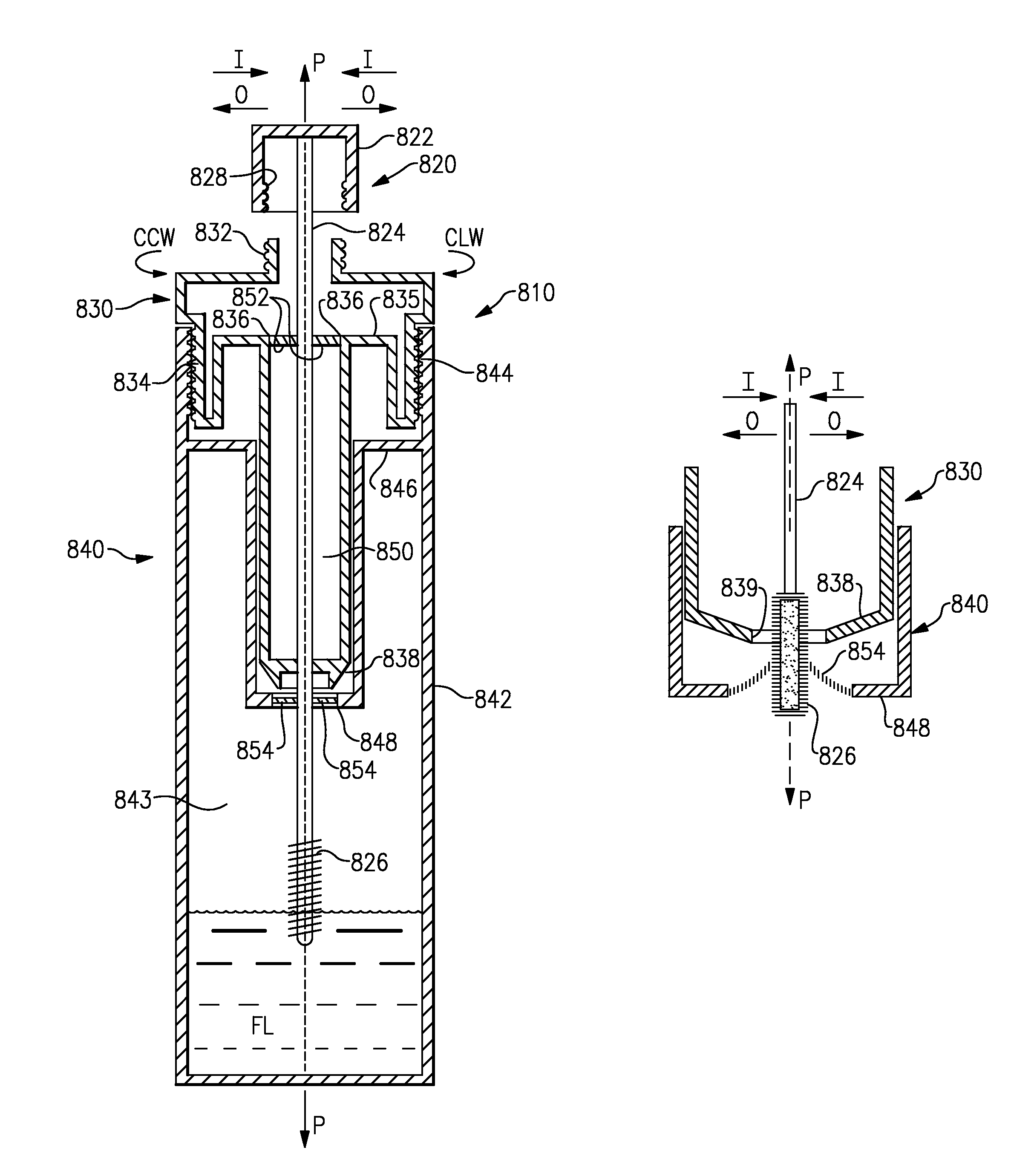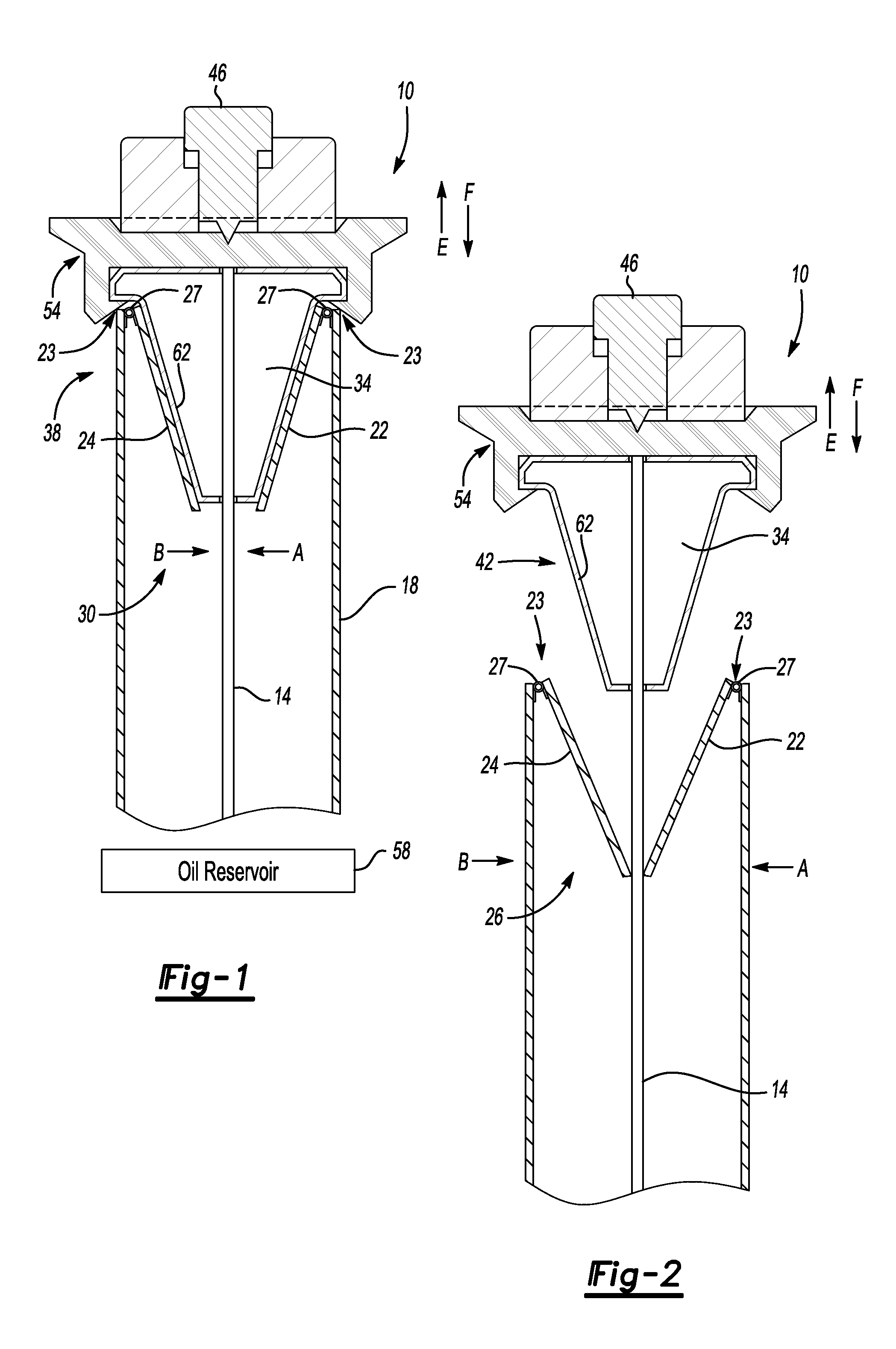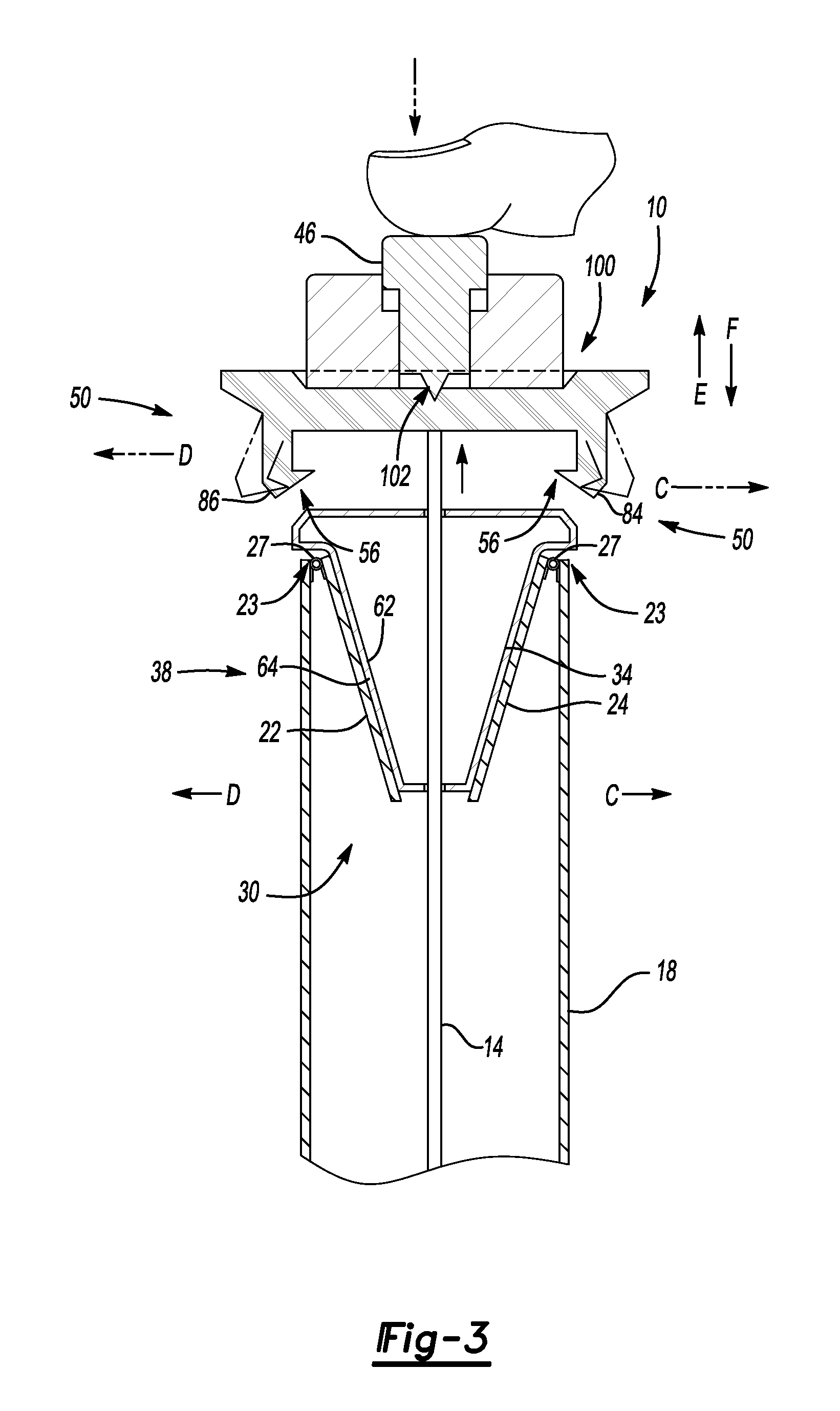Fluid reservoir assembly
a technology of fluid reservoir and assembly, which is applied in the direction of liquid/fluent solid measurement, engine lubrication, brushes, etc., can solve the problems of messy technique, inconvenient, and inconvenient to use, and achieves simple and inexpensive assembly and technique.
- Summary
- Abstract
- Description
- Claims
- Application Information
AI Technical Summary
Benefits of technology
Problems solved by technology
Method used
Image
Examples
Embodiment Construction
[0066]FIG. 1 illustrates inventive dip stick assembly 10. Dip stick assembly 10 has an inserter, here dip stick 14, disposed in housing 18 as shown. Housing 18 is connected to oil reservoir 58 in a vehicle. Dip stick 14 has markings 15 that permit the fluid level of oil reservoir to be read by dip stick 14 as known.
[0067]In contrast to existing assemblies, dip stick assembly 10 has wipers, such as wipers 22 and 24, which pivot between engaged position 26 as shown in FIG. 2 and disengaged position 30 as shown in FIG. 1. Wipers 22, 24 are connected to housing 18 and are resiliently biased by springs 27 to engaged position 26, which is in contact with dip stick 14 as shown in FIG. 2. Wiper 22 is connected to housing 18 at pivot 23 while wiper 24 is connected to housing 18 at pivot 25. Within pivot 23 and pivot 25 are springs 27 that urge wiper 22 in the direction of arrow A and urge wiper 24 in direction of arrow B when wiper 22 and 24 are in the disengaged position 30 as shown in FIG....
PUM
 Login to View More
Login to View More Abstract
Description
Claims
Application Information
 Login to View More
Login to View More - R&D
- Intellectual Property
- Life Sciences
- Materials
- Tech Scout
- Unparalleled Data Quality
- Higher Quality Content
- 60% Fewer Hallucinations
Browse by: Latest US Patents, China's latest patents, Technical Efficacy Thesaurus, Application Domain, Technology Topic, Popular Technical Reports.
© 2025 PatSnap. All rights reserved.Legal|Privacy policy|Modern Slavery Act Transparency Statement|Sitemap|About US| Contact US: help@patsnap.com



